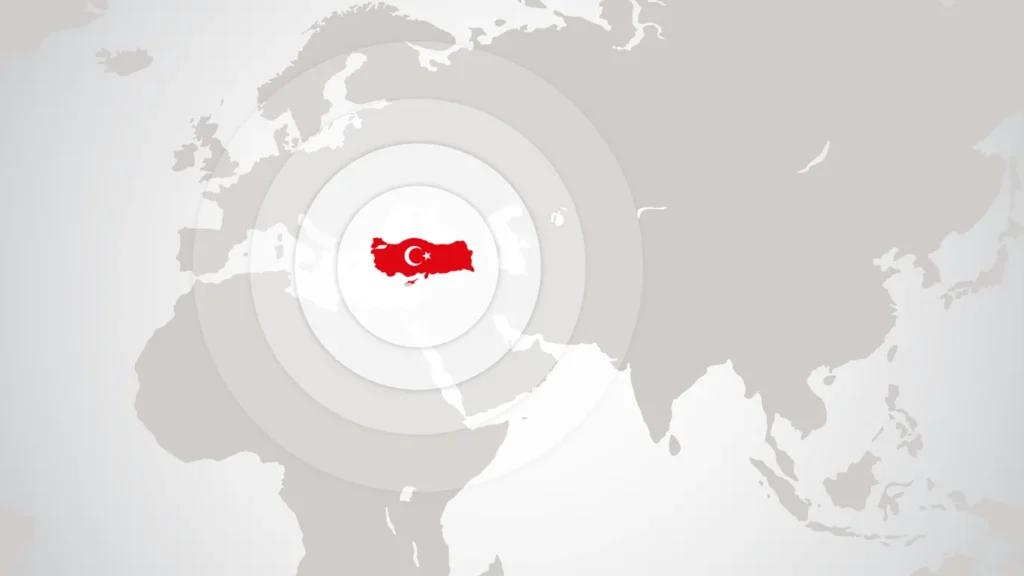Unveiling the Advantages of the Turkish Economy for Investors
Turkey, a country that bridges Europe and Asia, presents a unique and compelling case for investors. The Turkish economy, characterized by its dynamic growth, strategic location, and diverse sectors, offers a multitude of opportunities for both local and international investors. In this article, we will unveil the advantages of the Turkish economy, highlighting why it is an attractive destination for investment.
The Turkish economy offers a wealth of advantages for investors, ranging from its strategic location and robust economic sectors to its favorable investment climate and attractive real estate market. The country’s diverse and resilient economy, supported by a skilled workforce and modern infrastructure, creates a conducive environment for business growth and profitability. Whether you are looking to invest in manufacturing, agriculture, tourism, technology, or real estate, Turkey presents a range of opportunities that cater to various investment goals and preferences. As a bridge between East and West, Turkey stands out as a compelling destination for investors seeking to capitalize on its unique advantages and dynamic growth potential.

Turkey’s Strategic Location and Geopolitical Importance
Turkey’s strategic location is one of its most significant advantages for investors. Situated at the crossroads of Europe and Asia, Turkey serves as a critical hub for trade and commerce between the two continents. This unique positioning allows businesses to access a vast market that spans multiple regions, including Europe, the Middle East, Central Asia, and North Africa.
Gateway to Major Markets
Turkey’s proximity to major markets is a key asset for investors. The country is within a four-hour flight radius of major financial centers in Europe, the Middle East, and Central Asia, making it an ideal base for regional operations. Istanbul, Turkey’s largest city and financial capital, is particularly well-positioned as a global business hub. The city’s new Istanbul Airport, one of the largest in the world, enhances its connectivity and accessibility, further boosting its appeal to international investors.
Trade Agreements and Economic Partnerships
Turkey’s extensive network of trade agreements and economic partnerships also contributes to its strategic advantage. The country is a member of the Customs Union with the European Union (EU), which facilitates tariff-free trade with EU member states. Additionally, Turkey has free trade agreements with numerous countries, providing preferential access to various markets. These agreements create a favorable environment for businesses looking to expand their reach and capitalize on new opportunities.

Robust and Diversified Economy at Turkey
Turkey’s economy is characterized by its diversity and resilience, offering a wide range of investment opportunities across various sectors. The country’s economic structure is supported by strong industrial, agricultural, and service sectors, each contributing to its overall stability and growth.
Manufacturing and Industry
Turkey has a well-developed manufacturing sector that plays a crucial role in its economy. The country is a leading producer of automotive, textile, and machinery products, with a robust industrial base that supports these industries. The automotive industry, in particular, has attracted significant foreign investment, with major global brands establishing manufacturing facilities in Turkey. The country’s skilled workforce, competitive labor costs, and advanced infrastructure make it an attractive destination for manufacturing investments.
Agriculture and Agri-Business
Agriculture is another vital sector of the Turkish economy, with the country being one of the world’s top producers of various agricultural products. Turkey’s fertile lands, favorable climate, and abundant water resources contribute to its strong agricultural output. Key agricultural products include fruits, vegetables, grains, and livestock. The agri-business sector offers numerous investment opportunities, ranging from primary production to food processing and export-oriented businesses.
Tourism and Hospitality
Turkey’s tourism and hospitality sector is a significant driver of economic growth, attracting millions of visitors each year. The country’s rich cultural heritage, diverse landscapes, and historical landmarks make it a popular destination for tourists. Major tourist destinations such as Istanbul, Antalya, Cappadocia, and Ephesus offer a range of attractions and experiences. The tourism sector presents investment opportunities in hospitality, travel services, and real estate development, catering to the growing demand for high-quality accommodations and leisure activities.
Technology and Innovation
Turkey is rapidly emerging as a hub for technology and innovation, with a growing ecosystem of startups, tech companies, and research institutions. The country’s young and tech-savvy population, coupled with government support for innovation and entrepreneurship, has fostered a vibrant tech sector. Istanbul and Ankara are home to numerous tech parks and innovation centers, providing a conducive environment for startups and tech businesses. Investment opportunities in this sector include venture capital, fintech, e-commerce, and information technology services.

Favorable Investment Climate in Turkey
The Turkish government has implemented various measures to create a favorable investment climate and attract foreign direct investment (FDI). These initiatives include economic reforms, incentives, and regulatory frameworks designed to support business growth and development.
Investment Incentives and Support Programs
Turkey offers a range of investment incentives and support programs to attract foreign investors. These incentives include tax exemptions, reduced customs duties, and grants for research and development (R&D) activities. The Turkish government has also established free zones and organized industrial zones that provide additional benefits, such as infrastructure support and simplified administrative procedures. These incentives create a competitive advantage for investors, reducing the cost of doing business and enhancing profitability.
Ease of Doing Business
Turkey has made significant strides in improving its business environment, making it easier for companies to operate and invest in the country. The government has streamlined business registration processes, reduced bureaucratic hurdles, and enhanced legal protections for investors. The country’s well-developed financial sector, modern infrastructure, and access to skilled labor further contribute to its attractiveness as an investment destination.
Political and Economic Stability
Despite regional challenges, Turkey has maintained a stable political and economic environment that supports investor confidence. The government’s commitment to economic reforms and fiscal discipline has contributed to macroeconomic stability and sustained growth. Additionally, Turkey’s strategic importance and role as a regional power provide a degree of geopolitical stability that is attractive to investors.

Turkey’s Attractive Real Estate Market
Turkey’s real estate market presents lucrative opportunities for investors, driven by the country’s growing population, urbanization, and tourism industry. The demand for residential, commercial, and tourism-related properties continues to rise, creating a dynamic and profitable market.
Residential Real Estate
The residential real estate market in Turkey offers a range of options, from affordable apartments to luxury villas. Major cities like Istanbul, Ankara, and Izmir are experiencing significant urban development, with new residential projects catering to various income levels and preferences. The Turkish Citizenship by Investment program, which allows foreign investors to obtain citizenship through property purchases, has further boosted demand in the residential market.
Commercial Real Estate
Turkey’s commercial real estate market is also thriving, driven by the growth of the retail, office, and industrial sectors. Modern office spaces, shopping centers, and logistics facilities are in high demand, particularly in major urban centers. Istanbul, as the country’s commercial hub, offers a wide range of investment opportunities in commercial real estate, including office buildings, retail spaces, and mixed-use developments.
Tourism and Hospitality Real Estate
The tourism and hospitality real estate market in Turkey is buoyed by the country’s popularity as a tourist destination. Investment opportunities in this sector include hotels, resorts, and vacation rentals in prime locations. Coastal regions such as Antalya, Bodrum, and Fethiye are particularly attractive for tourism-related real estate investments, offering stunning natural beauty and a growing influx of visitors.


